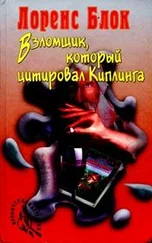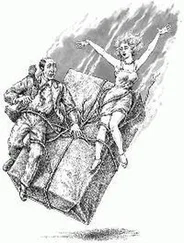He kept a lid on this most of the time. When Bobbie had shown him the portrait, he’d been strong and logical and reassuring, the apostle of pure reason.
Yet he’d looked at the portrait and had seen, instantly. Ariel’s face. Ariel as an adult, strong and seductive, pale face shining and damned eyes burning hypnotically as they had burned when they had held and looked into his. That was what he had seen — but he had given no sign, and a later glance told him, all reasonably, that the portrait was merely a portrait, the woman in it merely a long-dead flower of the south.
Sometimes it seemed obvious to him that the only answer lay in breaking things off with Bobbie once and for all. The hours they spent in interchangeable motel rooms, for all the frenzy and heightened tension, were increasingly unsatisfying, leaving him time and again with a feeling not unlike a hangover, dry of mouth, short of breath, determined never to touch the stuff again. That he elected to continue the affair sometimes seemed to him the clearest evidence of all that he was indeed losing his grip on things, that he was truly losing his mind.
And yet something inside him kept insisting that Bobbie was the core of his life, his destiny — she was the mother of his dead child... they’d shared life and death, after all — that the hours he spent away from her were unbearably flat and lifeless. Just the other night he’d been sitting in the basement recreation room with Elaine and the girls, watching something unmemorable on the tube, glancing from time to time at the wet bar and the knotty pine walls and the recessed lighting, then at his wife and daughters, then once more at the oversize color television set. The good life in the suburbs, he had thought, and all of it hollow, pointless, and he found himself yearning to be away from all of this, away from it and from them forever, alone somewhere on an island or in a city or off in the middle of the desert with Bobbie — her pull was that strong, however much she upset him.
There was a time, he thought now, when that might have worked. When she was pregnant with his child, that would have been the moment for them to turn their backs on everything and just go. But instead it was the moment that had just gone, and he had stayed with Elaine while she had stayed with David, and Caleb was born and died and—
Well, fool’s business, he told himself, was better than no business at all. He left the Deeds Registry, strode on foot to his office and past it, and headed for the newspaper offices.
Erskine was waiting for her when school let out. “Well, we’re on our way,” he said. “Got busfare?”
“Oh.”
“Nice day for an expedition, isn’t it? Sunny, not too cold out.”
“Maybe we should forget it.”
He looked at her.
“Well, I haven’t even seen him around the past few days,” she said. “Maybe Roberta just had to see him for some reason or other, and then we happened to see him a few times out of coincidence.”
“Some coincidence.”
“It’s possible.”
“Why would she be seeing some lawyer, anyway?”
“Maybe to get a divorce.”
“From David?”
“Well, who else is she married to, birdbrain? Of course from David. She’d be glad to get a divorce from me but you can’t divorce children. It doesn’t work that way. The only way she can get rid of me...”
“What were you going to say?”
“I was going to say the only way she’ll get rid of me is by killing me, but I don’t want to say it too loud. I wouldn’t want to give her any ideas.”
They walked as they talked, heading automatically for the bus stop on Meeting Street. Erskine pointed out that Channing had been at the funeral, that he had been cropping up in their lives too frequently for his connection to be merely professional.
“Oh, I know,” Ariel said. “I just don’t know if I feel like going all the way out there, but it’s all right. I’m going, aren’t I?”
“It’s just a bus ride and a walk.”
“And a bus ride back.”
“Right. Maybe we’ll see his kids. Greta and Debbie.”
“That’ll be a thrill. Which was the one you talked to?”
“Greta. She’s the older one.”
“Right, and you told her you were Graham. You can show her your spleen.”
“You always tell me I’m gross, Jardell.”
“Well, look who taught me. Maybe she’ll be cute and you can make out with her.”
“She’s all of nine years old, remember?”
“Well, tell her you’re Graham and you can pretend she’s Veronica.”
“You must have taken a weird pill today, Jardell.”
On the bus, he said, “Speaking of Veronica, she wasn’t in school today.”
“So?”
“I wonder what’s wrong with her.”
“The poor little thing probably has the sniffles.”
“Maybe.”
“Of course if you want to send her a get-well card, go right ahead. What’s the big deal that she stayed home from school today?”
He shrugged. “Just that I was thinking,” he said. “That conversation we had, and then Graham got hit by a car and now Veronica stayed home from school.”
“That doesn’t make any sense.”
“I suppose not.”
She thought of a candle stub centered beneath a portrait — but that was crazy. She hadn’t done anything. She hadn’t even thought of Veronica in days.
“Graham got hit by a car,” she said.
“I know.”
“And Veronica probably has a cold or a stomach ache. Or maybe she just stayed home to go someplace with her mother.”
“Maybe.”
“Talk about me being weird today, Mr. Erskine Wold. You could make money giving weird lessons.”
Investigation is a simpler process when you know what you’re investigating. If Jeff had had the benefit of David’s conversation with Etta Jellin, he’d have been looking for material on Grace Molineaux from the start. Instead he had to spend several hours in the newspaper files, scanning endless yellowed issues of last century’s newspapers for anything he could find relating to various occupants of the brick house on Legare Street. He came on the stories of several persons who had died in the house and made copious notes on each, having no way of knowing whether or not he’d found what he was looking for.
When he hit Grace Molineaux, he knew he was home.
The story was much as Etta Jellin remembered it, with a few exceptions. Grace Duprée Molineaux’s four children, three boys and a girl ranging in age from four months to five years, all died within a three-week period in September of 1882. The youngest, a boy, was the first to go, dying in his sleep on the night of the fifth. The girl, a three-year-old, died six days later, and her eighteen-month-old brother perished the same night. The oldest boy failed to wake up on the morning of the twentieth.
The newspaper coverage was guarded. The first death was unremarkable — infant mortality was high in those days. Jeff missed the initial story, a two-line squib on a back page. But when the boy and girl died in the same night, and only a week after the first death, the coincidence drew journalistic attention.
The fourth death was the clincher. Reading between the lines, Jeff could easily determine that public opinion suspected the Molineaux woman of smothering her children while they slept. Without suggesting as much, the anonymous author of one news story hastened to point to extenuating circumstances, showing that Grace was under a strain. She was a young woman who had married a man twenty years older than herself. Jacob Molineaux, a heavily-decorated hero of the Confederacy, had given her four children in as many years, only to be lost at sea weeks before the birth of his youngest son. Grace’s own father had died a matter of months earlier, and a favorite cousin had killed himself at about the same time in remorse over heavy gambling losses. All of these tragedies, cited ostensibly to show that the loss of her children was by no means the first blow Grace had suffered, served to imply that, if indeed she had murdered her children, she had done so out of stress-induced emotional instability.
Читать дальше







